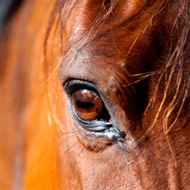
Free leaflets promote a better understanding of equine AMR
The British Equine Veterinary Association (BEVA) has published a series of client information leaflets to promote education about antibiotic resistance.
The leaflets are free and have been designed to promote a better understanding of equine antimicrobial resistance and how to use medicines responsibly.
They can be provided in paper form, as well as shortened URLs and QR codes that can be attached to medicine packaging.
Antimicrobial resistance is an emerging clinical problem that is recognised internationally as one of the largest threats to humans and animal health. All major health and veterinary organisations are working to try and limit the development of resistance so that effective antimicrobials can be retained for use in clinical practice.
Following the launch of BEVA's PROTECT ME campaign in 2012, two-thirds of equine practices now adhere to self-imposed policies governing the responsible use of antimicrobials.
The Equine Veterinary Journal (EVJ) was the first publication worldwide to adopt an antimicrobial stewardship policy in its author guidelines. The new online collection comprises ten clinical reports and studies and three editorials covering current trends on bacterial populations, risk factors and the appropriate use of antimicrobials in practice.
Professor Peter Clegg, associate editor of the Equine Veterinary Journal, said: “It remains to be determined how big a problem antimicrobial resistance will become for the equine veterinary profession, either through greater difficulties in treating horses, or through political pressure to restrict access to antimicrobials.
"Meanwhile the EVJ remains committed to the promotion of responsible stewardship to best preserve the efficacy of the drugs we have got for as long as we can.”
Mark Bowen, president of the British Equine Veterinary Association added: “BEVA has a long-term commitment to promoting responsible antimicrobial use throughout the profession and supporting EAAD through the PROTECT ME brand.
"This year we have released resources around education, aimed at the profession through EVJ and to the horse owning public through development of material that can be provided alongside antimicrobial dispensing. The work of the equine profession in preserving the highest priority antimicrobials will ensure efficacy can be retained for as long as is possible.”
To access the leaflets visit www.beva.org.uk.



 The latest
The latest